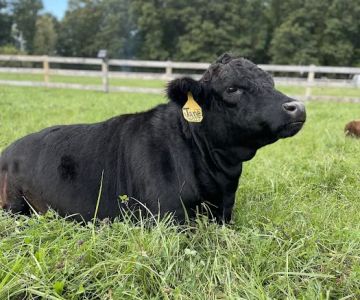What Do I Need to Be a Veterinary Assistant?
If you’re passionate about animals and want to pursue a career in veterinary care, becoming a veterinary assistant might be the perfect path for you. This role allows you to work closely with veterinarians, helping animals during check-ups, treatments, and emergencies. But what exactly do you need to become a veterinary assistant, and what does this career involve? Let’s take a deep dive into the requirements and skills you’ll need to succeed in this field.
1. The Role of a Veterinary Assistant
A veterinary assistant supports veterinarians and veterinary technicians in providing medical care to animals. Their duties can vary greatly, depending on the size of the practice and the needs of the animals. Common tasks include taking care of animals, assisting with exams and procedures, maintaining equipment, and handling administrative tasks.
1.1 Typical Tasks and Responsibilities
As a veterinary assistant, your day-to-day duties will often include feeding and bathing animals, cleaning cages, sterilizing medical instruments, and assisting with examinations. You might also help with taking x-rays, administering medications, and monitoring animals during surgery or recovery.
1.2 Working Environment
Veterinary assistants can work in a variety of settings, including animal hospitals, private veterinary offices, shelters, and research facilities. Some may even work for animal rescue organizations. The work environment can be fast-paced and emotionally demanding, especially when dealing with animals in pain or distress. However, for those who love animals, it can be an incredibly rewarding career.
2. Qualifications and Education Required for a Veterinary Assistant
Becoming a veterinary assistant requires a blend of formal education, hands-on experience, and specific skills. Here’s what you need to know about the qualifications needed to pursue this career.
2.1 High School Diploma or Equivalent
While some veterinary assistant programs may accept candidates with only a high school diploma or equivalent, most require some foundational knowledge in science and math. Completing courses in biology, chemistry, and health science during high school can be beneficial as it provides a solid foundation for veterinary assistant training.
2.2 Formal Training or Certification
While it’s possible to work as a veterinary assistant without formal training, many employers prefer candidates who have completed a veterinary assistant program. These programs are typically offered by community colleges, vocational schools, and online platforms. They often include both coursework and hands-on clinical experience.
2.3 Certification for Veterinary Assistants
Although certification isn’t always required, obtaining certification as a veterinary assistant can enhance your job prospects and show potential employers your level of professionalism. The American Veterinary Medical Association (AVMA) offers the Certified Veterinary Assistant (CVA) credential. This certification involves passing an exam after completing a training program.
3. Essential Skills for a Veterinary Assistant
In addition to formal education, veterinary assistants must possess a variety of skills to effectively support veterinarians and care for animals. Below are the key skills that will help you succeed in this role.
3.1 Compassion and Patience
As a veterinary assistant, you’ll need to show a deep sense of compassion and patience, both with the animals in your care and the pet owners. Animals often experience fear or pain during their visits, and you must be calm and gentle to help ease their anxiety.
3.2 Strong Communication Skills
Veterinary assistants must communicate effectively with veterinarians, technicians, and pet owners. You’ll be responsible for relaying important information about an animal’s condition, providing instructions to pet owners, and working as part of a team in the clinic. Clear, empathetic communication is key in providing the best care.
3.3 Physical Stamina and Dexterity
The work of a veterinary assistant can be physically demanding. You’ll often be on your feet for long periods, lifting animals, cleaning cages, and assisting with various procedures. Good physical stamina and dexterity are essential for performing these tasks effectively and safely.
4. Gaining Experience as a Veterinary Assistant
While formal education is important, gaining hands-on experience is just as crucial in preparing you for a career as a veterinary assistant. Below are some of the ways you can gain experience.
4.1 Internships and Volunteer Work
Many veterinary assistant programs require students to complete internships or clinical rotations, providing valuable real-world experience. If you’re not enrolled in a formal program, consider volunteering at animal shelters or veterinary clinics to gain hands-on experience and enhance your resume.
4.2 On-the-Job Training
Once you start working as a veterinary assistant, you will likely undergo on-the-job training. This is an important part of learning how to manage various tasks, use medical equipment, and develop a deeper understanding of animal care. Many employers offer mentorship and training programs to help you succeed in your role.
5. Career Advancement Opportunities for Veterinary Assistants
While many veterinary assistants remain in this role, there are also opportunities for career growth and advancement. Some of the options include moving into veterinary technician roles, management positions, or even specialized areas such as dentistry or anesthesiology.
5.1 Continuing Education and Specialization
Veterinary assistants can pursue further education and certifications to specialize in areas like veterinary dentistry, animal behavior, or surgical assistance. These specializations can open up more job opportunities and potentially lead to higher salaries.
5.2 Moving into Veterinary Technician Roles
Many veterinary assistants use their experience as a stepping stone to becoming veterinary technicians. To become a veterinary technician, you would typically need to complete a formal education program and obtain certification, but your experience as an assistant will be invaluable.
6. Conclusion: Starting Your Journey as a Veterinary Assistant
Becoming a veterinary assistant is an excellent choice for individuals passionate about animals and interested in working in the medical field. With the right education, skills, and experience, you can enjoy a fulfilling career helping animals and supporting veterinary teams. Whether you choose to pursue certification or gain experience on the job, the future is full of exciting opportunities in this field.
If you’re ready to start your journey as a veterinary assistant, research the training programs and certification options available to you. Whether you're looking to start in a veterinary clinic or seeking specialized opportunities, there are plenty of ways to turn your passion for animals into a rewarding career.











